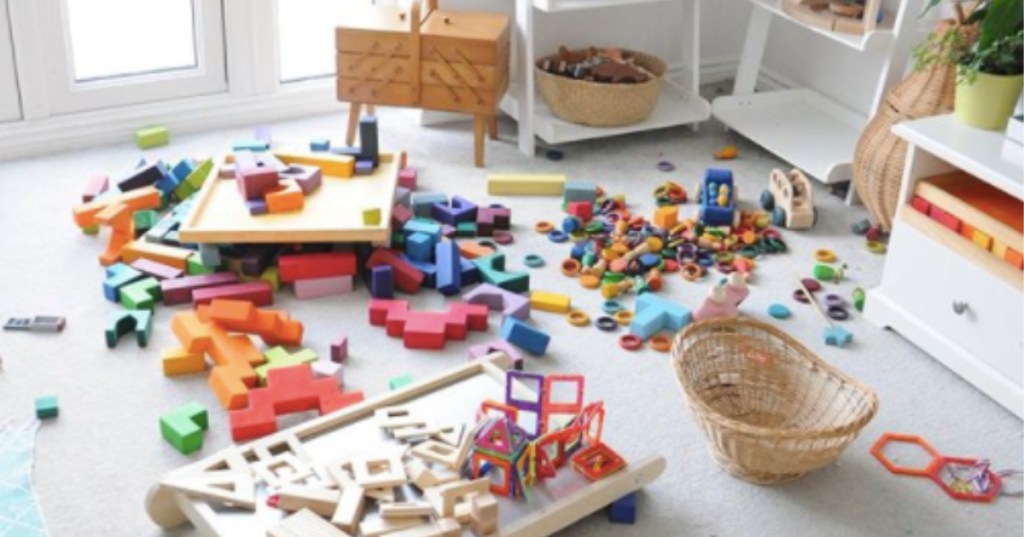We’ve all had those days when the dishes are piled in the sink, toys are everywhere, the kids are probably naked and have dirty hair, and you can’t find the will to care, right?
Sometimes we get up and do it anyway, other times we let it sit until morning (or afternoon or evening), but either way, we feel guilty about all of the ways we’re failing our kids (and what our mothers would think if they could see the house).
What if you didn’t have to, though?
https://www.instagram.com/p/Bei24wxlIe-/
Journalist Tim Harford, author of Messy: The Power of Disorder to Transform Our Lives, wants you to consider the idea that not only is a little disorder acceptable, it’s necessary for creativity.
One of his biggest tips is one that can be applied across the board in parenting – pick your battles.
“We have a real tendency to try to control other people’s mess and make them tidy up. It’s a very common problem in offices when you have clean desk policies, and there’s really no rationale. It frustrates workers. The same thing is true in the home.”
So, for example, it’s good to have rules that your children help with household chores that must get done, like keeping a tidy kitchen that doesn’t attract mice and bugs, but it’s also okay to let their rooms look however they want.
https://www.instagram.com/p/B-DVsarA1dM/
He says also to keep in mind that things beyond the physical can be making “messes” in your life, and learning how to thrive with one type can assist with handling the other.
“There’s having messy surroundings, but also messiness in other ways. Like having to deal with different kinds of people and things that can’t be planned. Those situations are opportunities to problem-solve differently, and make us more creative, more responsive, human.”
Another one of my personal favorite think-pieces on parenting pointed out that we, as the responsible adults, are forced to say no all the time – we need to keep them safe, we have other people’s schedules to consider, and we would like for our homes to not be destroyed – so when you can say yes, you should.
Harford describes a similar revelation with his daughter.
https://www.instagram.com/p/B5OvoYBgCyc/
“At the time she was about 11 and she asked, ‘Can I walk to school?’ And my initial instinct was ‘I can’t deal with another change to the routine right now,’ and I caught myself and I thought, ‘Why can’t she walk to school? She knows the say, she just told me she wants to do it, and this actually makes my life easier.”
Some people, Harford says, are a little too attached to their binders and planners, and it’s not doing anyone any good.
“I think it’s really tempting to overschedule our children. And, I think it’s really tempting also to let them overschedule themselves.”
One study supports this way of thinking, finding that kids and teenagers who were overscheduled tended to quickly become demotivated because their schedule did not account for the many things that could crop up and prevent their “success” of checking all of the boxes every day.
Basically, he’s advocating for a more laid-back lifestyle in which kids take the lead with their own level of messiness, and their own scheduling, and their own activities while we’re supportive but not overly involved.
I don’t know, but I like the sound of that.
How about you? Do you follow this “pick your battles” and “say yes when you can” life? I think I’m going to double my efforts!
